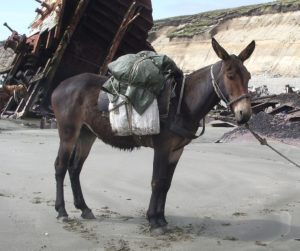 New lessons are released the first day of each month.
New lessons are released the first day of each month.
Here are a few of the new lessons available for February 2017.
To listen to these and other Daily English and Cultural English lessons, become a Select English Member today!
………
DAILY ENGLISH 1286 – Experiencing Headaches
In the Learning Guide: Get a full transcript (written version of every word you hear), vocabulary list and sample sentences, and comprehension questions.
In “What Else Does it Mean,” learn the other meanings of “to lie” and “to stock.”
In the “Culture Note,” learn about “Common Headache Cures/Home Remedies.”
“When a headache ‘strikes’ (happens or occurs with negative consequences), there’s little…” – READ MORE in the Learning Guide
…
CULTURAL ENGLISH 594
Topics: The Black Loyalists of the American Revolution; alert versus alarm versus warning; haze versus mist; pronouncing “advantage” and other “nt” words
In the Learning Guide: Get a full transcript (written version of every word you hear).
In “What Insiders Know,” you will read about “The Longoria Affair.”
“Felix Longoria was a Mexican American soldier who fought in World War II…” – READ MORE in the Learning Guide
…
DAILY ENGLISH 1287 – Using Adapters and Converters
In the Learning Guide: Get a full transcript (written version of every word you hear), vocabulary list and sample sentences, and comprehension questions.
In “What Else Does it Mean,” learn the other meanings of “plug” and “outlet.”
In the “Culture Note,” learn about “Roy Sullivan – Survivor of Seven Lightning Strikes.”
“Many people say that the ‘odds’ (probability; likelihood) of being ‘struck’ (hit)…” – READ MORE in the Learning Guide
 This month, we’ll be celebrating President’s Day on the 20th of February. Actually, the holiday is officially called “
This month, we’ll be celebrating President’s Day on the 20th of February. Actually, the holiday is officially called “ It’s either feast or famine.
It’s either feast or famine. Have you ever wondered why some words in English are capitalized (in big letters; type of letters at the beginning of sentences) and some words are not?
Have you ever wondered why some words in English are capitalized (in big letters; type of letters at the beginning of sentences) and some words are not? . . . is surreal.
. . . is surreal. Americans love to complain about the United States Postal Service (USPS), which we more commonly call the “post office.” They are blamed for lost or late mail, even for the amount of junk mail (unwanted mail, including advertisements) we receive. But if we step back and look at the extraordinary lengths (efforts) the USPS goes to to deliver mail, we might appreciate the post office a little more.
Americans love to complain about the United States Postal Service (USPS), which we more commonly call the “post office.” They are blamed for lost or late mail, even for the amount of junk mail (unwanted mail, including advertisements) we receive. But if we step back and look at the extraordinary lengths (efforts) the USPS goes to to deliver mail, we might appreciate the post office a little more.